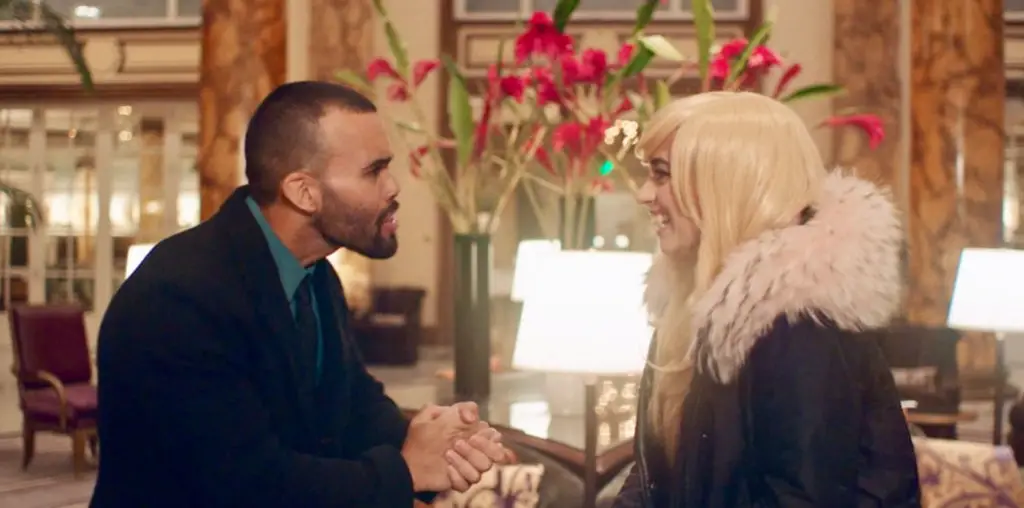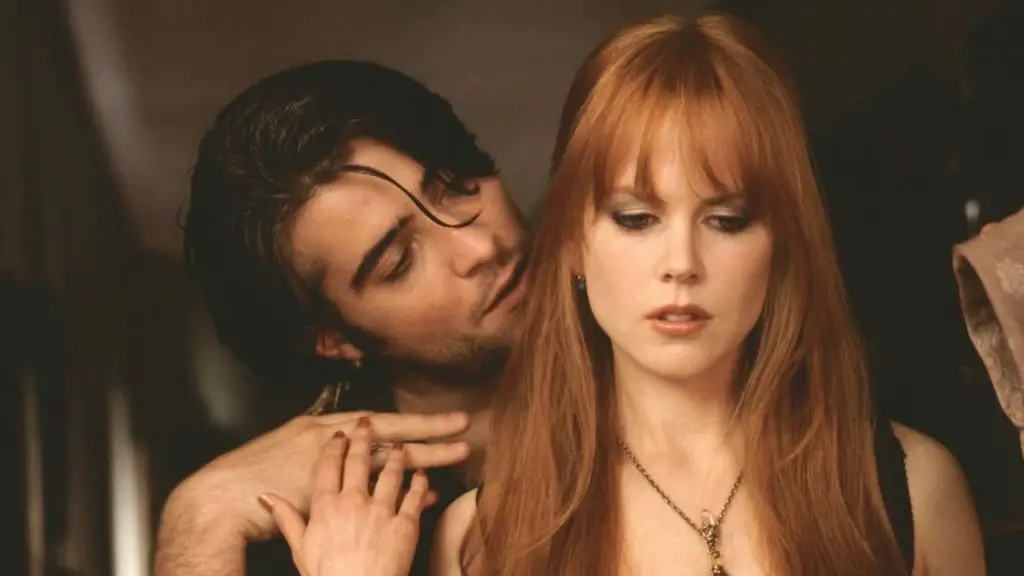
When Sean Dunne uploaded his short documentary The Archive to Vimeo, he had no idea he’d become an overnight cult sensation. Still it happened, a mind-blowing, life changing explosion—proving once again, that dreams really can come true in the 21st century.
In the following interview, the 29-year-old filmmaker shares his unbelievable journey from obscurity to fame. The fact that Dunne still reels from the shock of it all, and remains as modest and hardworking as ever, makes this story all the sweeter.
Did you go to film school?
To be honest— No! I was going to go the whole film-school route to learn hands-on camerawork, but decided against it and studied theory and criticism, instead. I always had the idea that I wanted to direct, but never really discussed this with anyone. It just sounded so pretentious! Then one day, I just did it, and made The Archive. From then on, my life changed.
What’s your current day job?
I make commercials.
Nice…just like Joachim Back who recently won an Oscar for his short The New Tenants. You have no idea how much I love it when outsiders take the film industry by storm.
Absolutely! Me too!
So tell me more about the advertising work directly preceding The Archive.
I was hired to direct 12 filmmaker-profiles for the Sundance Channel. The usual format showcases the filmmakers sitting in an empty movie theater, speaking about their work. I wanted to do something different, so I suggested shooting them in their own element. From this formula, I created 3 short documentaries: The Archive, Man in Van, and my most recent film, The Bowler.
The Archive feels strange. The principal seems to be consumed by his voluminous archive of records. Tell me about the actual shooting.
I directed The Archive while I was writing and producing advertising promos. I was sent to shoot a commercial in Pittsburgh and took this opportunity to film Paul (the archivist) at the same time. Unbeknownst to me, the Vimeo I put online, took off in a big way and then became a huge sensation at Sundance!
Unbelievable! What happened next?
Well, by then, I was itching to make The Bowler, which seemed a little more fun, uplifting, and looser.
The Bowler is another odd film. It’s a documentary but almost doesn’t feel that way. My films are just the opposite. People think they’re documentaries when they’re not.
I know exactly what you mean! People think The Bowler is a mockumentary. They ask, “Oh my God, how did you write this thing?”
At first I was very concerned about this reaction, but now consider it a compliment.
Do you see yourself making a narrative?
Right now, I’m not super interested in narratives. Reality is too fascinating.
The Bowler reminds me of Krzysztof Kieslowski’s early docs—right before he made the switch to narratives. You know his people are real, yet they have that “character” feel.
I’m so glad it comes off like that because believe me, so much goes on behind the scenes to create that affect!
You had to direct the Bowler to play himself. That’s never an easy task!
And especially difficult for him in particular! I hung out with him and his friends socially for a very long time before we made the film. He flourished so much more, entertaining large groups of people, than in a one-on-one with me.
He’s so hyper! How did you manage him on the set?
I had 4 or 5 crewmembers standing behind me and told everyone that this was a party and to feel free to laugh and ask lots of questions. The whole atmosphere was really loose, which was exactly how I wanted the film to feel—so the Bowler could emerge completely from his shell.
The Bowler is very feisty for an older guy.
Actually, he’s only 46. It’s all that hard living, I guess (laughs)!
Paul from The Archive is elderly, right?
He was 69 when I filmed him and he’s 71 now.
Interesting! He seems so much older…Is he a street person?
I think he was when he was younger, but I don’t like to delve too much.
I notice that approach in The Bowler, too.
Yeah, I don’t like the films to dwell upon background material and offer explanations. I guess I’m drawn to these types of people for a reason. They’re all kind of similar.
The Archivist is more mainstream than the Bowler, but seems more pathetic and unstable.
Oddly that’s true! I think it has to do with the Bowler’s comfort in not controlling life, but going with the flow. This gives him a certain amount of openness and freedom that really reflects his personality. On the other hand, Paul (the Archivist) is owned by his record collection! When he sits with these belongings all day, every day, he builds up an anger toward them that threatens explosion.
Why do you enjoy making documentaries like these?
I feel like I can really connect with individuals and get them to open up. I’m genuinely interested in others—especially, new people. It’s funny. The more I delve, the more likely I’ll dig up the worst. That’s why I prefer not to investigate too much. For example, the Bowler has a son, but I chose not to meet him. That wasn’t how I wanted to make the film.
It was the same with The Archive. I asked myself, “What story do I really want to tell?”
People forget that the documentary director is is an auteur, presenting an interpreted story.
Exactly! People tend to believe documentaries are so pure, but that’s really not the case at all!
Let’s return to the internet. If you didn’t have a “real” job in advertising, would you be able to survive as a web-filmmaker? How does that work financially?
At first I never concerned myself with this question. Also, in a funny way, the subjects I shoot in advertising are mini films!
Sure, but can the average filmmaker make money on the web?
Yes, I think there is a way to make money on the internet. I think people are drawn to my films not only because they are average, but because they can feel that I genuinely care about those I film. I’ve certainly experienced a whirlwind success on the internet and now companies license my films because of the web. I’ve made all my money back on The Bowler, that’s for sure!
Why would a company license a film they can see for free?
I’m not sure why companies would want to do this either, but they do. In my case, PBS bought the rights to The Archive so they could show it on POV. When you think about it, they probably could have gotten away with just taking it off the web and I wouldn’t have been the wiser.
What about the diminished quality of online films? Also, I always worry about disqualification from festivals if I show films online.
Well, I hope that technology will only get better and better. As for disqualification, my film was shown online and made it into Sundance anyway. By the time I sent The Archive to Sundance (as a goof, BTW), over a million people had seen it on the web. If anything, I think that the internet only helped the film reach the widest possible audience. Think about it. Even if The Archive was accepted in every known festival, how many people would actually see it? Not many!
But how do people know to look for you online, if you’re not well known—especially when you think about how glutted the internet is?
All I know is that The Archive took on a life of its own and instantly went viral. I think that’s the key. The first few days are crucial. In one day, the film received 25,000 hits. Then the blogs picked it up and suddenly I found reviews and conversations everywhere. It was weird! Now I have this internet-following and no matter what I put up, millions watch it— immediately. I can’t explain why! It’s shocking!
Did you sell the rights to any other shorts after they were uploaded to the internet?
Yes, Man in Van was also sold this way. I think what I appreciate most about web exposure, is that people actually discuss the films intelligently, as if they were news stories, They even comment about the techniques of filmmaking, which is amazing!
Has internet exposure of The Bowler helped you? It’s certainly a popular film!
Yes. As a result of web exposure, I was hired for many high paying commercial projects, and now I’m toying with several new film ideas.
Do you think the internet will succeed as a viable moneymaker, and if so, how?
Well, I think it all boils down to advertising. In the case of The Archive, someone said, “Whoa…over a million people just looked at this thing. Let me license this for my website and try to drum up traffic by incorporating some advertising…” And that’s why they had to pay me. Careerwise, these internet films have changed my life. How else would people have noticed and hired me to make commercials (which is where the real money is)? Once people see your film this way, they come to you and ask you to market it—-but for a different product.
As for me, as long as I’m behind the camera and not working 9-5, I’m happy!

